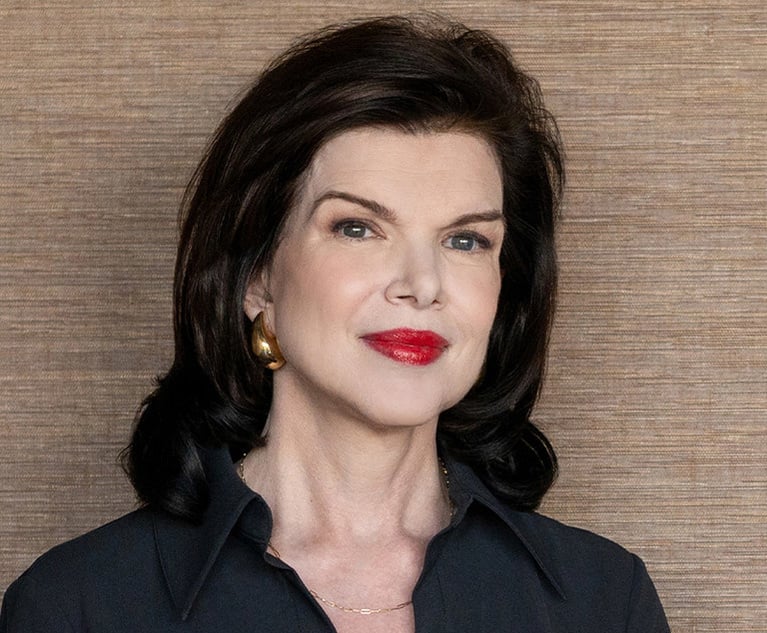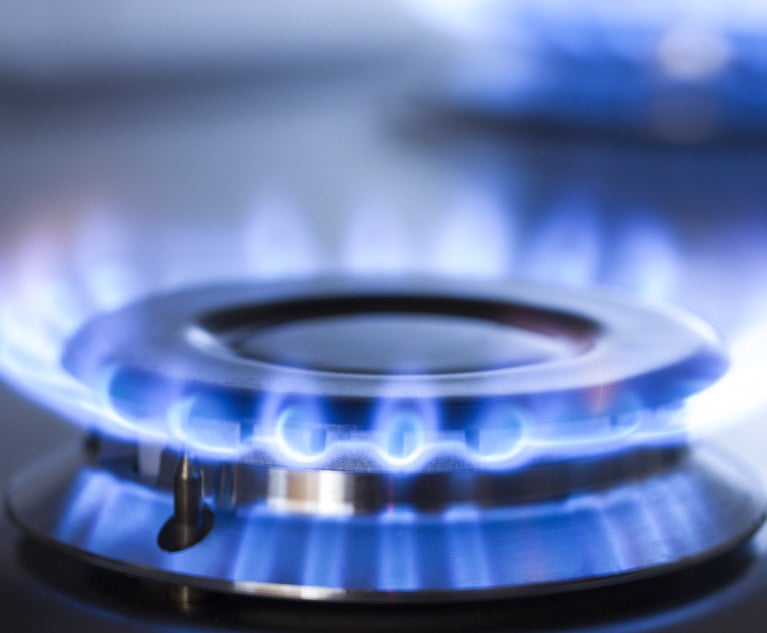Texas is Experimenting With Jury Trials Amid COVID-19. A Dallas Litigator Says That's Better Than Nothing
"Two types of connection are at jeopardy with remote trials," said Quentin Brogdon, partner at Crain Brogdon Rogers. "The first and most obvious is the trial lawyer with the jurors. The second and equally important connection is the client with the jurors. "
May 28, 2020 at 12:51 PM
5 minute read
 Photo: SUWIT NGAOKAEW/Shutterstock.com
Photo: SUWIT NGAOKAEW/Shutterstock.com
"Experimentation" will be the word in Texas courts this summer as judges test safe methods for jury trials to return in the COVID-19 era.
Although some of the ideas that are swirling about these jury trial experiments raises concerns for Dallas litigator Quentin Brogdon, he said he's willing to accept the testing.
It's the lesser of two evils: much better than no jury trials at all for a year, explained the partner at Crain Brogdon Rogers.
Also a member of the executive committee of Dallas Chapter of the American Board of Trial Advocates, Brogdon has been studying and writing about the pandemic's widespread cancellations of jury trials and how to bring them back. He was one lawyer, along with bar leaders, judges and court staff, who served on an advisory committee of the Texas Office of Court Administration regarding the jury trial experiment order that the Texas Supreme Court issued Wednesday.
Read more: Texas Jury Trials to Resume This Summer Under Experimental Program
Texas Lawyer chatted with Brogdon to learn his thoughts about the potential jury trial experiments that may occur in the wake of the virus crisis. Here are his answers, edited for brevity and clarity.
Texas Lawyer: What do you think about this idea of Texas experimenting with jury trial procedures?
 Quentin Brogdon. Courtesy photo
Quentin Brogdon. Courtesy photoBrogdon: The wheels of justice have to keep turning. Courts across Texas have already had perhaps 100,000 Zoom video hearings. The Texas Supreme Court's order represents a balanced, measured approach. It threads the eye of the needle nicely: It allows jury trials to resume without placing jurors and court staff in unnecessary danger. It allows the rollout to occur incrementally.
Do you have any concerns, and if so, what?
Any trial lawyer who has tried more than two to three trials justifiably will be concerned about this new experimentation. The idea of not seeing jurors in person and not being able to ensure that you have their undivided attention is concerning, to say the least. The alternative, however, is unpalatable: the complete shut down of jury trials indefinitely.
As a lawyer, would you advise the client to consent to an experimental jury trial, or not?
Before I could advise a client to consent to a remote jury trial, or a jury trial with experimental features, I would have to feel confident that the jury pool would be as representative as a pre-COVID-19 jury pool. Secondly, I would have to feel confident that the procedures in place would enable a fair and impartial consideration of the evidence by the juror.
Would you be open to the jury qualification being done over Zoom or the internet?
Some pre-qualification on health status probably now is justified. Beyond that, the idea of pre-qualifiying jurors remotely makes me personally uncomfortable. One of the big issues about the use of the Internet to qualify jurors is that by definition, only certain types of jurors have free and clear access to the Internet. Necessarily, you are excluding certain segments of the population.
Would you be open to the voir dire happening over Zoom? Would you prefer a large venue like a conference center or stadium?
There is something sacred and longstanding about jury trials occurring in courthouses. The idea of choosing a jury in a stadium clearly runs afoul of that. But if the choice is the use of a stadium, or forgoing the jury trial, I will reluctantly accept the stadium venue. In-person interaction with jurors always trumps interaction over Zoom. If the choice is a stadium or Zoom, I would choose the stadium.
Read more:
Juror Walks Off to Take Phone Call as Texas Tests First Jury Trial Via Zoom
The Jury and the Screen: Judges, Lawyers Reflect on Texas' Experimental Zoom Jury Trial
If there were an in-person jury trial, and everyone is spread out six feet and wearing masks—or alternatively, separated by plexiglass—how would you feel about those options?
Having an in-person jury trial with jurors spread out and in masks undoubtedly will impede the ability of the trial lawyer to connect with those jurors. I can't begin to answer the question of if it would be better to have jurors in masks, or behind plexiglass. Either alternative sounds terrible. If the choice is giving up the right to a jury trial for a year, or proceeding forward in such an impeded manner, probably I would advise proceeding forward.
I know trial lawyers are charismatic and they use it for persuasion in the courtroom. In these experimental options, does the thought of losing some of that persuasion and influence worry you?
Two types of connection are at jeopardy with remote trials. The first and most obvious is the trial lawyer with the jurors. The second and equally important connection is the client with the jurors. We have all seen how juror attention wanes when jurors watch videotaped depositions. There is something magical and engaging about live testimony.
This content has been archived. It is available through our partners, LexisNexis® and Bloomberg Law.
To view this content, please continue to their sites.
Not a Lexis Subscriber?
Subscribe Now
Not a Bloomberg Law Subscriber?
Subscribe Now
NOT FOR REPRINT
© 2025 ALM Global, LLC, All Rights Reserved. Request academic re-use from www.copyright.com. All other uses, submit a request to [email protected]. For more information visit Asset & Logo Licensing.
You Might Like
View All
Houston Trial Lawyer Mary-Olga Lovett Leaves King & Spalding to Open Boutique
3 minute read

Deal Watch: Private Equity Dealmakers Make 2025 Predictions Amid Deal Resurgence
12 minute read
Trending Stories
- 1SEC Files Lawsuit Against Elon Musk Over Untimely Twitter Ownership Disclosure
- 2Survey Finds Majority of Legal Professionals Still Intimidated by AI Despite Need to Streamline Mounting Caseloads
- 3FTC Launches Inquiry of Single-Family Rental Home 'Mega Investors,' Issues PBM Report
- 4Womble Bond Dickinson's Wilmington Office Sees New Leadership as Merger Is Completed
- 5Defending Against a $290M Claim and Scoring a $116M Win in Del. Drug Patent Fight
Who Got The Work
J. Brugh Lower of Gibbons has entered an appearance for industrial equipment supplier Devco Corporation in a pending trademark infringement lawsuit. The suit, accusing the defendant of selling knock-off Graco products, was filed Dec. 18 in New Jersey District Court by Rivkin Radler on behalf of Graco Inc. and Graco Minnesota. The case, assigned to U.S. District Judge Zahid N. Quraishi, is 3:24-cv-11294, Graco Inc. et al v. Devco Corporation.
Who Got The Work
Rebecca Maller-Stein and Kent A. Yalowitz of Arnold & Porter Kaye Scholer have entered their appearances for Hanaco Venture Capital and its executives, Lior Prosor and David Frankel, in a pending securities lawsuit. The action, filed on Dec. 24 in New York Southern District Court by Zell, Aron & Co. on behalf of Goldeneye Advisors, accuses the defendants of negligently and fraudulently managing the plaintiff's $1 million investment. The case, assigned to U.S. District Judge Vernon S. Broderick, is 1:24-cv-09918, Goldeneye Advisors, LLC v. Hanaco Venture Capital, Ltd. et al.
Who Got The Work
Attorneys from A&O Shearman has stepped in as defense counsel for Toronto-Dominion Bank and other defendants in a pending securities class action. The suit, filed Dec. 11 in New York Southern District Court by Bleichmar Fonti & Auld, accuses the defendants of concealing the bank's 'pervasive' deficiencies in regards to its compliance with the Bank Secrecy Act and the quality of its anti-money laundering controls. The case, assigned to U.S. District Judge Arun Subramanian, is 1:24-cv-09445, Gonzalez v. The Toronto-Dominion Bank et al.
Who Got The Work
Crown Castle International, a Pennsylvania company providing shared communications infrastructure, has turned to Luke D. Wolf of Gordon Rees Scully Mansukhani to fend off a pending breach-of-contract lawsuit. The court action, filed Nov. 25 in Michigan Eastern District Court by Hooper Hathaway PC on behalf of The Town Residences LLC, accuses Crown Castle of failing to transfer approximately $30,000 in utility payments from T-Mobile in breach of a roof-top lease and assignment agreement. The case, assigned to U.S. District Judge Susan K. Declercq, is 2:24-cv-13131, The Town Residences LLC v. T-Mobile US, Inc. et al.
Who Got The Work
Wilfred P. Coronato and Daniel M. Schwartz of McCarter & English have stepped in as defense counsel to Electrolux Home Products Inc. in a pending product liability lawsuit. The court action, filed Nov. 26 in New York Eastern District Court by Poulos Lopiccolo PC and Nagel Rice LLP on behalf of David Stern, alleges that the defendant's refrigerators’ drawers and shelving repeatedly break and fall apart within months after purchase. The case, assigned to U.S. District Judge Joan M. Azrack, is 2:24-cv-08204, Stern v. Electrolux Home Products, Inc.
Featured Firms
Law Offices of Gary Martin Hays & Associates, P.C.
(470) 294-1674
Law Offices of Mark E. Salomone
(857) 444-6468
Smith & Hassler
(713) 739-1250






